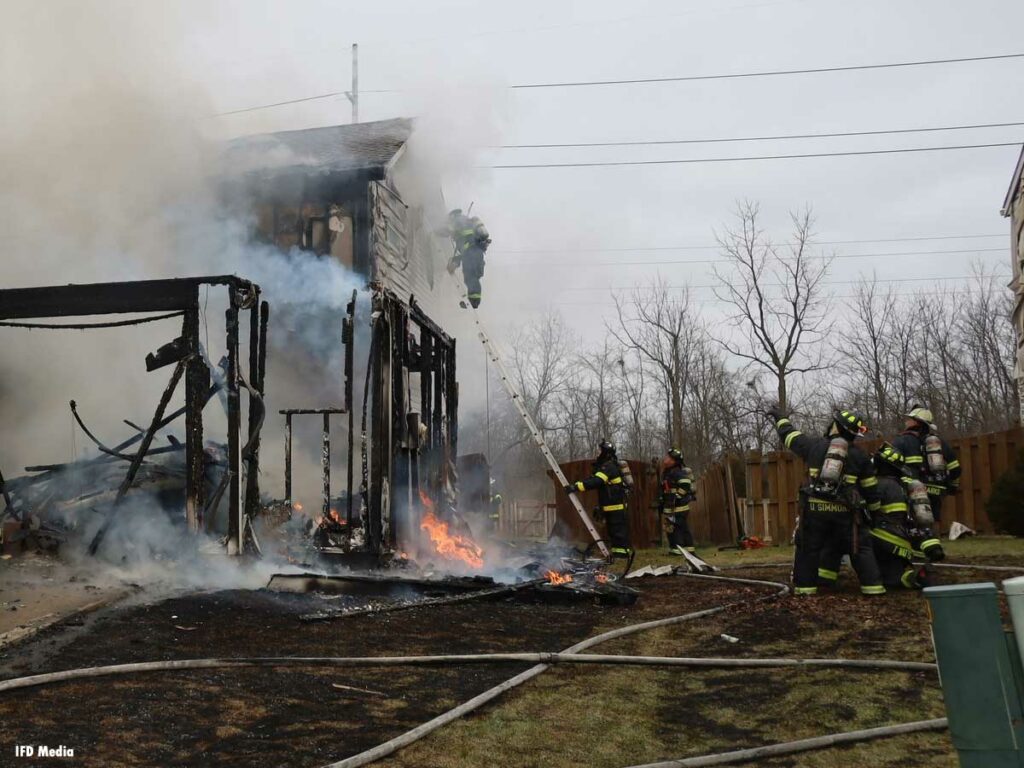What does it take to make a firefighter? A group of people willing to pass on their knowledge and students willing to admit when they don’t know

I was never a great firefighter. I was competent, reliable, and willing to learn. Every time I thought I had the job figured out, reality would prove otherwise. Once I realized that I would never know it all, things became a lot easier. As the years added up, I made peace with not being perfect, as I was rather good at imperfection. Without realizing it, that knowledge carried with it an air of confidence that somehow managed to be conveyed to the firefighters who were hired after me. We encounter things we never could imagine, never mind train for. Understanding that we will never have all the answers is liberating.
After 10 years fighting fires I became a rescue lieutenant, and then years later a rescue captain. It didn’t matter to most that I was an EMS officer in a department rich in the history of firefighting. My training officers taught me how to be the firefighter—and then officer—who didn’t need to tell everybody they were good firefighters. Like most of my department, we were simply people who learned how to be good enough that those that came after us wanted to be like us.
Now, the people who wanted to be like us are training the next generation of people with their careers ahead of them. They are the ones who figured out that they will never know it all. They are the ones who are creating the people who will lead the way, who will then take the reins.
Leadership runs far deeper than calling the shots.
Leadership is not something to be taken lightly.
Leadership needs to be nurtured, finely tuned, and ever present.
When I showed up in August of 1991 on Day 1 of the 42nd Academy of the Providence (RI) Fire Department I didn’t know a thing about firefighting, life in a firehouse, or life on the streets of Providence. I needed to be taught. Learning on my own, at my pace, when it was convenient would get me killed. My future department had a well-earned reputation for excellence, and the number one reason that reputation exists is because of the people who are The PFD. There were officers who showed me. They were not nice, but they were kind.
Kind of.
- Passing The Torch: Training and Traditions for the Next Generation of Firefighters
- The Senior Man
- Training the Next Generation: Millennials and Gen Z
- Harry Carter: Mentoring: Sharing Is Caring
They were experts at being fatherly without the distraction of unconditional fatherly love. They acted like big brothers who stopped short of handing out a beating when a beating was needed. Teachers who were experts at what they taught, and were quite effective. They became friends who were not all that friendly, but who I just knew had my best interests at heart.
I needed people with leadership skills; people not afraid to hurt my feelings. People who demanded respect, not because I had seen them in action—I hadn’t—but because they were seasoned firefighters and fire officers whose very presence demanded it. I needed examples of what I was becoming, who I was becoming and what I was capable of. I did not need unearned recognition. I was in training, not reality. My mettle would be tested when they were done with me, and not a moment before that time.
I needed people who knew when that time was. People whose trust I desperately wanted to earn. People who would trust me with their well-being when I was driving them, their pride and reputation when I was working with them on EMS, the million-and-one nonfire-related responses, and their lives when I fought fires beside them. I needed people who I trusted to teach me well, to give me the best chance at a successful career, and who would have my back, as I would have theirs.
It took them six months to get me ready to be ready to learn all there is to know about firefighting, EMS, and what it takes to be a firefighter. The fire academy was just the beginning. In the stations more great people waited to show me the way. Company officers, seasoned firefighters, and firefighters with a just little more experience than I had all participated in the creation of a firefighter who could stand on his own when needed and eventually be part of a crew, a company, a department and the history of firefighting, Twenty-five years on duty and I still had a lot to learn. Then, I retired. But not before passing on what I knew, and just as important, what I did not.
Firefighting is timeless when you surround yourself with people willing to learn, willing to teach, and willing to let the next generation take over.
Michael Morse is a retired captain with the Providence (RI) Fire Department. He is a husband, father, grandfather, hobbyist, adequate guitar player, amateur fisherman, terrible carpenter, pet lover, gardener of weeds with a few flowers, and a writer. He is the author of EMS by Fire and can be contacted at mmorsepfd@aol.com.
This commentary reflects the opinion of the author and does not necessarily reflect the opinions of Fire Engineering. It has not undergone Fire Engineering‘s peer-review process.

